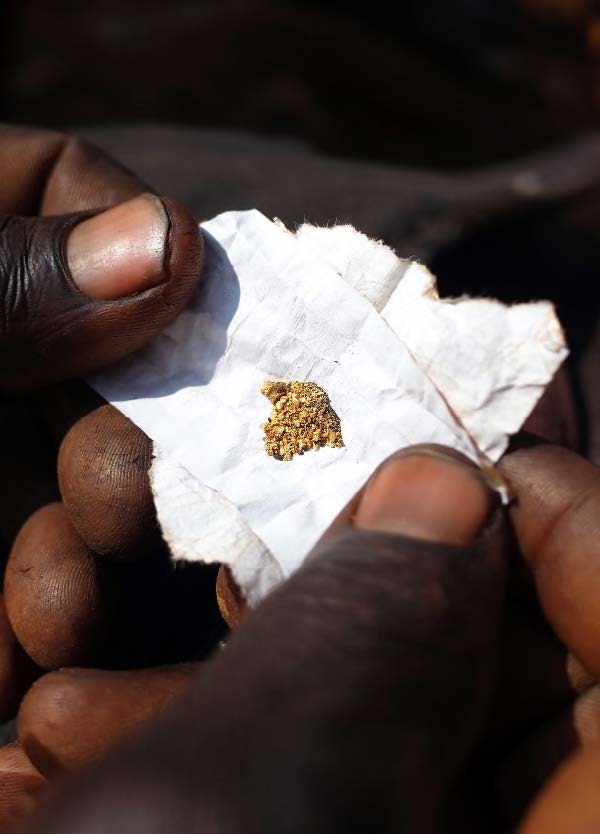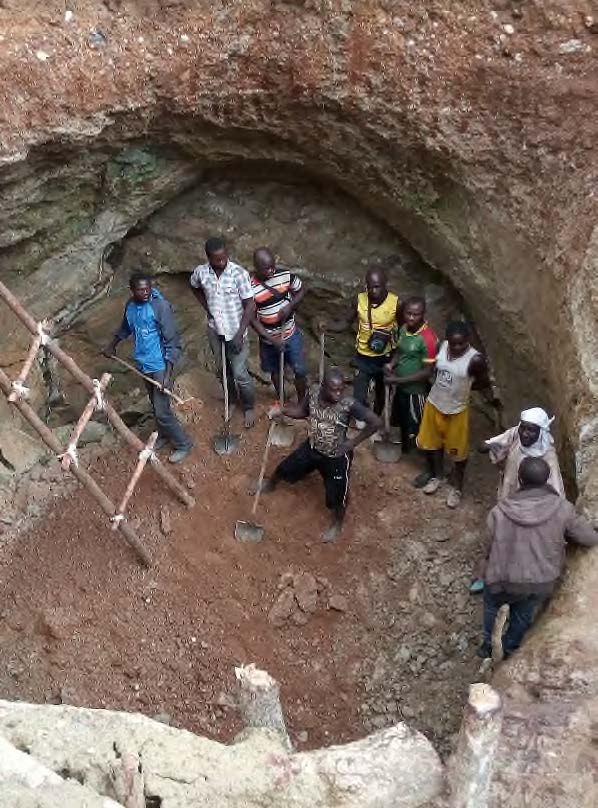Executive Summary
The gold sector is of increasing importance to CAR’s economy, with a significant expansion of both official export volumes and production estimates since 2015. While CAR has a detailed mining code, the legal and regulatory frameworks need updating to respond to and support the fast-growing gold sector. For example, the government’s 2019 report on legal exports represents only 6.3% of the annual gold production volume estimated by IPIS. Reforms are also critical to meet international market expectations of responsible gold trade which have solidified over the past decade, based on the principles and practices of due diligence.
 Due diligence is a framework which calls upon companies to make informed, responsible choices about their sources and suppliers. The goal of due diligence is to help companies create supply chains which respect human rights, do not contribute to conflict, and comply with international and national laws. Due diligence is not only responsible business practice, but has become a passport to international markets; it has been codified in laws such as the EU Conflict Minerals Regulation and private systems governing the supply chains of refiners, jewelers, electronics manufacturers, automotive companies, and other sectors. These industry systems and international, regional, and national laws require due diligence and risk mitigation as a condition of imports, contracts, or gold buying.
Due diligence is a framework which calls upon companies to make informed, responsible choices about their sources and suppliers. The goal of due diligence is to help companies create supply chains which respect human rights, do not contribute to conflict, and comply with international and national laws. Due diligence is not only responsible business practice, but has become a passport to international markets; it has been codified in laws such as the EU Conflict Minerals Regulation and private systems governing the supply chains of refiners, jewelers, electronics manufacturers, automotive companies, and other sectors. These industry systems and international, regional, and national laws require due diligence and risk mitigation as a condition of imports, contracts, or gold buying.
Unfortunately, armed group involvement and informality in the gold sector currently makes CAR a challenging operating environment for scrupulous international buyers who must screen out human rights and conflict-related risks from their supply chains. Thus, although gold is currently being exported from CAR, failure to update laws and governance systems will severely limit trade and investment opportunities with formal markets and industry partners.
Proactive due diligence measures can help the Central African gold sector manage and mitigate the material and reputational risks linked to “conflict gold.” Due diligence enables legitimate businesses to differentiate themselves as lower risk, even in challenging country contexts. In contrast to the Kimberley Process, which creates a pass-fail designation at the country or regional level, individual CAR cooperatives, collectors, buying houses, refiners, and their supply chains have the chance to meet due diligence benchmarks and connect to responsible markets despite an overall challenging context.
CAR’s public and private sector should collaborate to build a responsible gold sector and maximize international trade opportunities. The mining code, related laws, and business practices should be updated to integrate due diligence as described in the OECD Guidance and ICGLR Regional Certification Mechanism, including the following elements:
- Mine site mapping to gather important data on gold production and risks of human rights abuses and armed group involvement;
- Mine site inspection and validation, and prohibition of human rights abuses and armed group involvement in the mining sector and minerals supply chain in CAR;
- Establishment of chain of custody systems from mine to export to differentiate conflict-free minerals and trading chains (acceptable to the market) from those of illegal, conflict-affected, or unknown provenance (not acceptable to the market). Existing practices and tools such as bordereaux d’achat can be integrated into these systems.
- Comprehensive registration and licensing of legitimate mining operations, cooperatives, mining companies, collectors, buying houses, refiners, and other exporters; and exclusion of illegal actors and those perpetrating human rights abuses from the supply chain; and
- Validation of legal exports based on evidence documented during all of the above steps.

